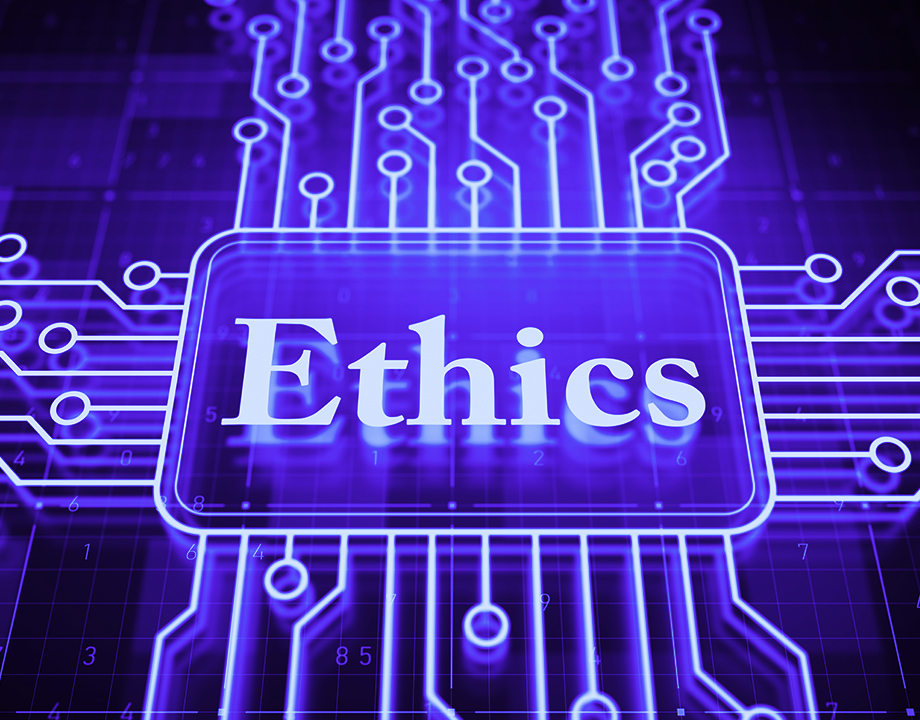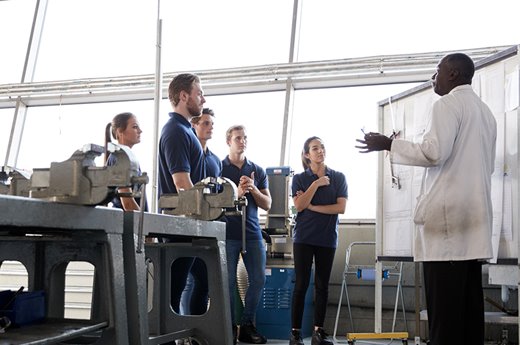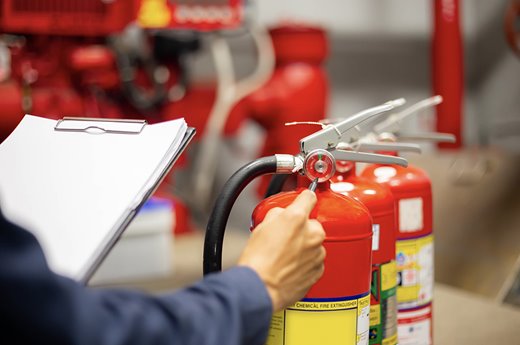7 Concerns Regarding Ethics and Safety in Engineering
7 Concerns Regarding Ethics and Safety in Engineering


Mechanical engineers often deal with short production timelines, impacting safety and forcing them to make questionable ethical decisions.
Mechanical engineers often design innovative consumer products in fast-paced, regulated industries. Speed to market is a constant pressure, putting MEs in a difficult position. Often, MEs need to insist on taking the time needed to be certain a product is safe and well-designed, despite heavy pressure from management or the customer to shorten the process to meet production or delivery timelines.
Many safety-critical decisions arise during the normal course of engineering design that must be answered through the application of ethics. To determine the top ethics/safety concerns that MEs face today, we consulted an expert in the field, P.E. Kenneth L. d’Entremont. He is an associate professor and lecturer in the Department of Mechanical Engineering at the University of Utah-Salt Lake City and author of Engineering Ethics and Design for Product Safety (McGraw Hill 2021). Below are his top seven ethics/product safety issues MEs may face in their engineering projects.
The curriculum of a sound mechanical engineering undergraduate program is packed with required topics arising from new developments and technologies. These include thermodynamics, fluid mechanics, solid mechanics, FEA (finite element analysis), CFD (computational fluid mechanics), and solid modeling. This heavy emphasis on technology developments can push ethics into the background.
However, engineering societies have long included the need to maintain the public’s safety, health, and welfare in their codes of ethics.
“While many might hold out engineering as a profession, many practicing engineers consider it a career and have few, if any, interactions with these engineering societies,” d’Entremont said. “There is little incentive for mechanical engineers to become professional engineers. For these people, engineering is a way to make a living, support a family, and obtain modest promotion over time within a business organization.”
Few engineers are reminded of their duties as engineers to protect the public. Fortunately, most engineers do this on their own, “but engineers should also be explicitly reminded of this and given opportunities, such as classroom case studies, to sharpen their ethical thinking skills,” d’Entremont said. “They may not have this ethical-reflection opportunity after they take on real-world jobs with tight schedules on real products that will affect the public.”
There is little actionable mention of safety within the engineering curriculum as with ethics. Engineers are instructed not to hurt people and only make safe products; engineering students generally have no problem with these directives, but are given no guidance on achieving this goal.
If any instruction is provided, “it is usually the pablum of simply following codes and standards,” d’Entremont said. “Many of us who have developed standards understand their limitations and minimal requirements. Such standards often lack critical information for design engineers making crucial design decisions affecting overall product safety.”
Furthermore, the idea of safety is often mixed with the concepts of reliability, compliance, quality, and availability. They are all related but distinct properties. A reliable product may perform perfectly as designed, but not as intended. A low-quality product may never operate due to failure but then be perfectly safe because of it.
Read our Blog: Are Remote Workers Behaving Ethically?
The current hyper-competitive business climate rewards innovative products delivered by record-short schedules. Any necessary redesigns for any reason, including improving product safety, can be met with negativity from management and executive leaders. “An engineer’s career might come to an end if an important deadline is missed,” d’Entremont said.
For example, a company might decide to ship a product when the revenue is needed for the financial report instead of when that product is thoroughly tested and actually ready for customer use. Depending on the company culture, MEs may be reluctant to challenge the decision because they fear being reprimanded, penalized, or losing their jobs.
Decisions made by the management directly affect the “psychological safety” felt by company personnel when confronted with an ethical issue. A company where its employees, including engineers, operate out of fear is headed for disaster. “People make terrible decisions when they are afraid,” d’Entremont said. “Such poor decisions may not come to light until sometime later, but their effects can be disastrous to a company’s bottom line and its reputation.”
Managers, directors, and executives often make important decisions by simply doing nothing.
“The status quo of only rewarding those managers and engineers when they meet their performance goals, without regard for public welfare, has indeed decided that ethical decisions are secondary to financial ones,” d’Entremont said. “The entire workforce has been trained—via stimulus and rewarded response—to behave only in this manner into the future. Regrettable decisions and actions should be expected to follow.”
Listen to ASME TechCast: An Emphasis on Ethics
Many of the people involved in standards development know that not all standards are helpful or are developed by competent people with pure motives. Some standards have been developed to support the current state of products without pushing designers and manufacturers to make further improvements. Sometimes, well-intentioned people have extrapolated their own limited knowledge during standards development to apply to products in different industries. In addition, some companies involved in standards development activities have used standardization efforts to stifle competition.
“Many engineers will be involved in standards development during their careers,” d’Entremont noted. “They should think critically about the motivations, goals, and methods used in their standards activities.”
Engineers involved in day-to-day engineering and standards-development activities may ask themselves to whom they owe their allegiance. By being employees of companies, they know that they must satisfy their employers, but they also must—as people—do what they think is right.
Ethical conflicts can arise for engineers when they serve on a standards-development committee. They may ask, “do I serve at the will of my employer or for the good of the public?” This is further complicated by the definition of “member” for each standards organization. Sometimes members are the engineers’ employers, while at other times, individuals are the members, regardless of the employer. “Although the latter is the better of the two membership models, it would be naïve to neglect the pressure a member’s employer will likely put on an engineer to represent commercial interests,” d’Entremont said. “Some standards committees read a preamble stating that members are chosen based on their abilities, not their employers—this is a commendable practice.”
You May Also Like: How to Make Ethical Decisions in Engineering
The necessarily slow pace of standards development means that designers of innovative new products will never have standards and codes to dictate their design decisions. Although discrete sections of existing standards can be cobbled together to help guide designers, there will be no authority behind them and probably best serve as necessary conditions rather than conditions for product performance and safety.
“Because of these realities—which will only likely expand with new technologies and accelerated product-development schedules—engineers will continue to be challenged ethically by their designs’ hazards, risks, intended uses, and potential misuses, once consumers start using them,” d’Entremont said. “It is necessary to objectively evaluate their designs with respect to consumer safety and speak up when needed. When this happens, hopefully, these ethical engineers will be supported by their companies.”
Mark Crawford is technology writer based in Corrales, N.M.
Many safety-critical decisions arise during the normal course of engineering design that must be answered through the application of ethics. To determine the top ethics/safety concerns that MEs face today, we consulted an expert in the field, P.E. Kenneth L. d’Entremont. He is an associate professor and lecturer in the Department of Mechanical Engineering at the University of Utah-Salt Lake City and author of Engineering Ethics and Design for Product Safety (McGraw Hill 2021). Below are his top seven ethics/product safety issues MEs may face in their engineering projects.
1. A Lack of Ethics Education
The curriculum of a sound mechanical engineering undergraduate program is packed with required topics arising from new developments and technologies. These include thermodynamics, fluid mechanics, solid mechanics, FEA (finite element analysis), CFD (computational fluid mechanics), and solid modeling. This heavy emphasis on technology developments can push ethics into the background.
However, engineering societies have long included the need to maintain the public’s safety, health, and welfare in their codes of ethics.
“While many might hold out engineering as a profession, many practicing engineers consider it a career and have few, if any, interactions with these engineering societies,” d’Entremont said. “There is little incentive for mechanical engineers to become professional engineers. For these people, engineering is a way to make a living, support a family, and obtain modest promotion over time within a business organization.”
Few engineers are reminded of their duties as engineers to protect the public. Fortunately, most engineers do this on their own, “but engineers should also be explicitly reminded of this and given opportunities, such as classroom case studies, to sharpen their ethical thinking skills,” d’Entremont said. “They may not have this ethical-reflection opportunity after they take on real-world jobs with tight schedules on real products that will affect the public.”
2. A Lack of Safety-Orientated Courses
There is little actionable mention of safety within the engineering curriculum as with ethics. Engineers are instructed not to hurt people and only make safe products; engineering students generally have no problem with these directives, but are given no guidance on achieving this goal.
If any instruction is provided, “it is usually the pablum of simply following codes and standards,” d’Entremont said. “Many of us who have developed standards understand their limitations and minimal requirements. Such standards often lack critical information for design engineers making crucial design decisions affecting overall product safety.”
Furthermore, the idea of safety is often mixed with the concepts of reliability, compliance, quality, and availability. They are all related but distinct properties. A reliable product may perform perfectly as designed, but not as intended. A low-quality product may never operate due to failure but then be perfectly safe because of it.
Read our Blog: Are Remote Workers Behaving Ethically?
3. Unforgiving Delays and Set-Backs
The current hyper-competitive business climate rewards innovative products delivered by record-short schedules. Any necessary redesigns for any reason, including improving product safety, can be met with negativity from management and executive leaders. “An engineer’s career might come to an end if an important deadline is missed,” d’Entremont said.
For example, a company might decide to ship a product when the revenue is needed for the financial report instead of when that product is thoroughly tested and actually ready for customer use. Depending on the company culture, MEs may be reluctant to challenge the decision because they fear being reprimanded, penalized, or losing their jobs.
4. Management Responsibility and Ethical Decisions
Decisions made by the management directly affect the “psychological safety” felt by company personnel when confronted with an ethical issue. A company where its employees, including engineers, operate out of fear is headed for disaster. “People make terrible decisions when they are afraid,” d’Entremont said. “Such poor decisions may not come to light until sometime later, but their effects can be disastrous to a company’s bottom line and its reputation.”
Managers, directors, and executives often make important decisions by simply doing nothing.
“The status quo of only rewarding those managers and engineers when they meet their performance goals, without regard for public welfare, has indeed decided that ethical decisions are secondary to financial ones,” d’Entremont said. “The entire workforce has been trained—via stimulus and rewarded response—to behave only in this manner into the future. Regrettable decisions and actions should be expected to follow.”
Listen to ASME TechCast: An Emphasis on Ethics
5. The Fallacy that Any Standard is Better than No Standard
Many of the people involved in standards development know that not all standards are helpful or are developed by competent people with pure motives. Some standards have been developed to support the current state of products without pushing designers and manufacturers to make further improvements. Sometimes, well-intentioned people have extrapolated their own limited knowledge during standards development to apply to products in different industries. In addition, some companies involved in standards development activities have used standardization efforts to stifle competition.
“Many engineers will be involved in standards development during their careers,” d’Entremont noted. “They should think critically about the motivations, goals, and methods used in their standards activities.”
6. An Engineer’s Allegiance
Engineers involved in day-to-day engineering and standards-development activities may ask themselves to whom they owe their allegiance. By being employees of companies, they know that they must satisfy their employers, but they also must—as people—do what they think is right.
Ethical conflicts can arise for engineers when they serve on a standards-development committee. They may ask, “do I serve at the will of my employer or for the good of the public?” This is further complicated by the definition of “member” for each standards organization. Sometimes members are the engineers’ employers, while at other times, individuals are the members, regardless of the employer. “Although the latter is the better of the two membership models, it would be naïve to neglect the pressure a member’s employer will likely put on an engineer to represent commercial interests,” d’Entremont said. “Some standards committees read a preamble stating that members are chosen based on their abilities, not their employers—this is a commendable practice.”
You May Also Like: How to Make Ethical Decisions in Engineering
7. The Lack of Design Standards and Codes
The necessarily slow pace of standards development means that designers of innovative new products will never have standards and codes to dictate their design decisions. Although discrete sections of existing standards can be cobbled together to help guide designers, there will be no authority behind them and probably best serve as necessary conditions rather than conditions for product performance and safety.
Outlook on New Technologies
“Because of these realities—which will only likely expand with new technologies and accelerated product-development schedules—engineers will continue to be challenged ethically by their designs’ hazards, risks, intended uses, and potential misuses, once consumers start using them,” d’Entremont said. “It is necessary to objectively evaluate their designs with respect to consumer safety and speak up when needed. When this happens, hopefully, these ethical engineers will be supported by their companies.”
Mark Crawford is technology writer based in Corrales, N.M.














